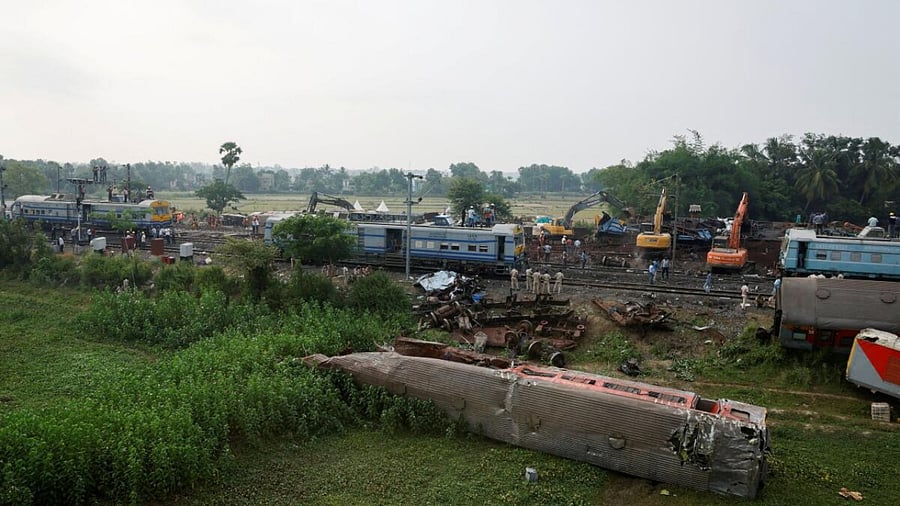
Amid speculations over the “root cause” behind the Balasore train accident that claimed 275 lives and left more than 1,000 others injured, Railway Minister Ashwini Vaishnaw on Sunday sought a probe by the Central Bureau of Investigation.
"Keeping in mind about all the administrative information available with us so far, the Railway Board has recommended a CBI probe into the incident," Vaishnaw told reporters in Bhubaneswar on Sunday evening.
Earlier in the day, the Minister separately said that the "root cause" of the accident and the "criminals" responsible for it have been identified.
"It happened due to a change made in the electronic interlocking and point machine," he said.
Along with the CBI, the Commissioner of Railway Safety (CRS) also conducted a parallel probe.
The government decided to order a CBI probe as it suspected tampering of the electronic interlocking system. Since the loco pilot of Coromandel got a green signal to move on the main line and the Signalling and Telecommunication Panel in the station master room showing everything normal, it was suspected that the interlocking system function and point machine was not functioning properly, said an official in the railways.
Normally, the signal turns red when the system fails. In this case, the signal was green and the loco pilot went ahead on the mainline presuming that the track was clear. Since electrical signal interlocking is a fail-safe technique, problems could arise due to external interference such as human mistakes, malfunction, and so on, said an official in the railway.
Vaishnaw also said that both the Up and Down railway tracks at Balasore accident site have been repaired. The track linking Up-line has been restored and overhead electrification work has also started. Normal train operation on this route is expected to start on Wednesday, he said.
Separately, the Odisha government on Sunday revised the triple train accident’s death toll to 275 from 288 and put the number of injuries at 1,175.
Even top railway officials indicated a “signalling interference”. Though nobody officially said it was sabotage, Jaya Verma Sinha, Member of Operations and Business Development, Railway Board, told media that "There is the probability of some kind of signalling interference...whether it was manual or incidental, wear and tear related, maintenance failure or weather related will come out in the inquiry.” She also ruled out the over-speed of trains.
Explaining how the point machine and the interlocking system function, Sinha said that the system is "error proof" and "fail safe" but did not rule out the possibility of outside intervention.
"It is called a fail-safe system, so it means that even if it fails, all the signals will turn red and all train operations will stop. Now, as the minister said there was a problem with the signalling system. It could be that someone has done some digging without seeing the cables. Running of any machine is prone to failures," Sinha said.
A senior railway official who did not want to be identified said this kind of tinkering with the "logic" of the AI-based electronic interlocking system can only be "intentional" and ruled out any malfunction in the system.
"It could be a case of tampering or sabotage from within or from outside. We have not ruled anything out," the senior railway official said.
Sinha said that even with the anti-collision technology Kavach, this accident could not have been averted due to the speed of the Coromandel Express and its distance from the stationary goods train.
The crash involving Bengaluru-Howrah Superfast Express and Shalimar-Chennai Central Coromandel Express and a goods train occurred around 7 PM on Friday near the Bahanaga Bazar station in Balasore, about 250 km south of Kolkata and 170 km north of Bhubaneswar.
Officials on Sunday gave the driver of the Coromandel Express a clean chit by stating that he had the green signal to move forward and he was "not over-speeding".
A preliminary report from the ground on Friday stated that the Coromandel Express had entered the loop line at the station on which an iron ore-laden goods train was parked.
So far, 123 trains have been cancelled and another 56 trains have been diverted following route disruptions due to the accident.

